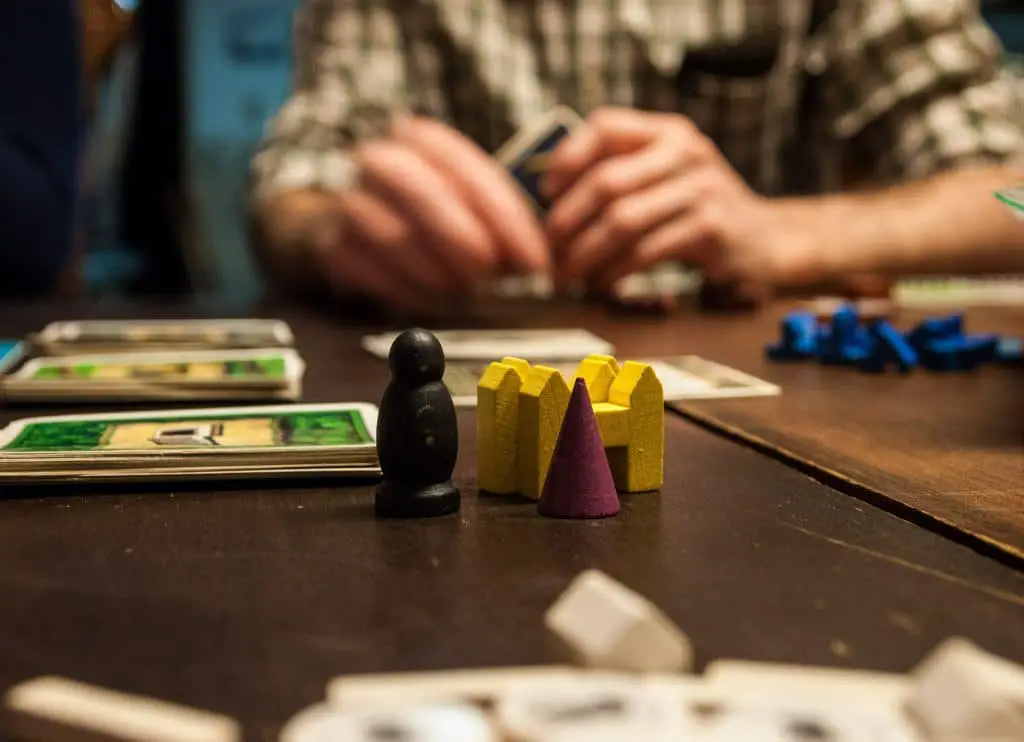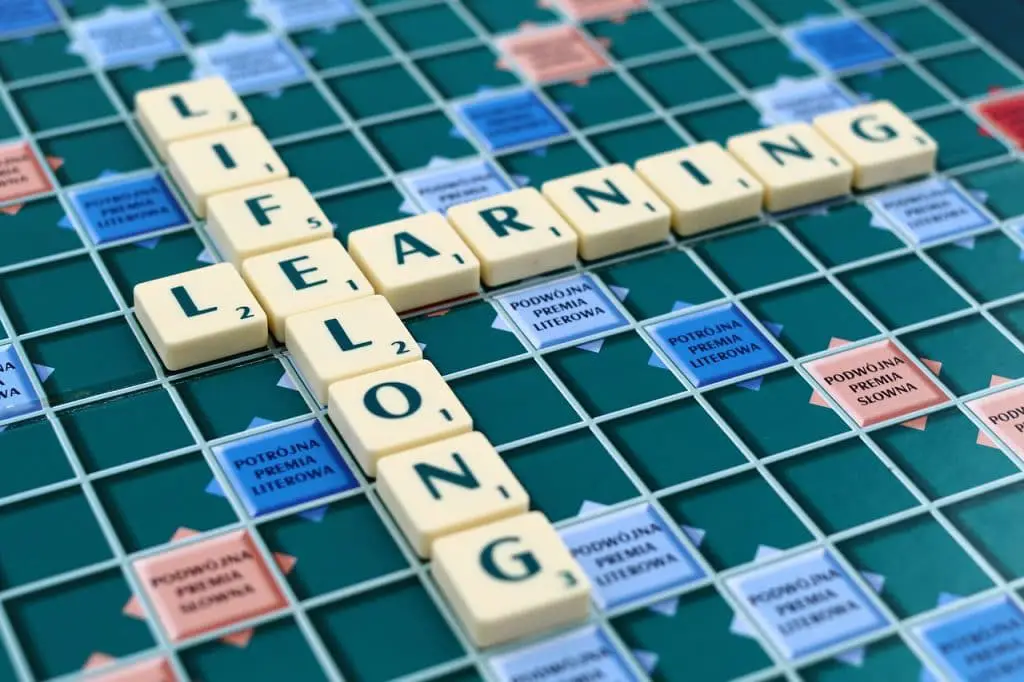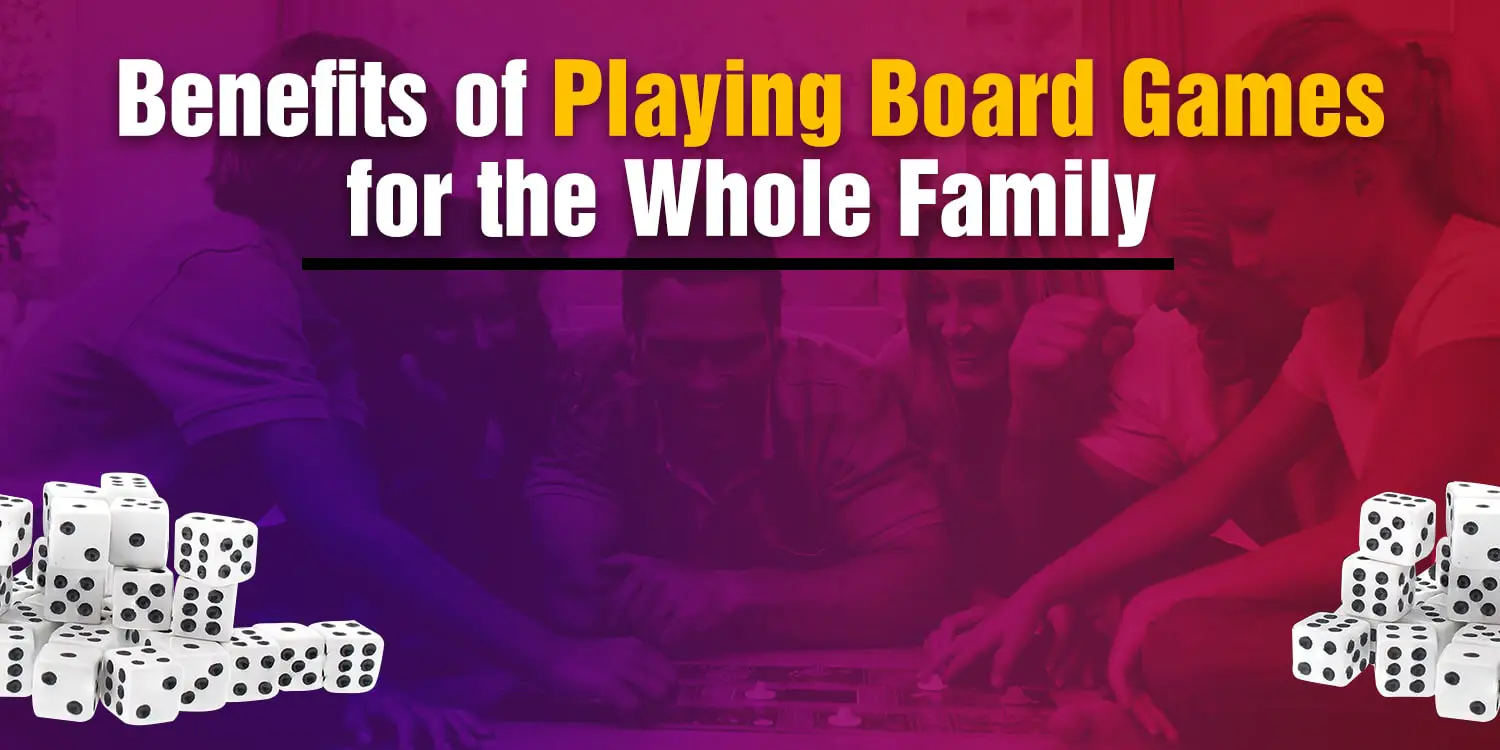While everyone may look back on early 2020 and remember how hard it was to find toilet paper and hand sanitizer, board games also flew off the shelves of most retailers. The advantages of board games certainly didn’t start with the pandemic, though. Board games are good for learning, and they have been for a long time. Keep reading to learn the specific benefits of playing board games, what you can learn from them, how they make you smarter, how they impact child development, and how your family can benefit from them.
Benefits of Playing Board Games
Playing board games offers you many different benefits. They can be categorized by health, social, physical and educational benefits.
Health Benefits of Board Games
Sitting around the table playing board games might seem quite the opposite of exercise, but you still get health benefits from these games. If you laugh and have a good time, then your brain releases more endorphins, making you happier.
Your brain also gets to enjoy improved cognitive skills and memory formation. Other specifically documented health benefits include preventing mental diseases and cognitive decline, boosting your immune system, and reducing stress.
Social Benefits of Board Games

Your body and mind are far from the only things to benefit from board games. Your social skills can also improve. Board games are particularly useful for children learning social skills, as they learn how important teamwork is.
They also learn basic social skills like sharing, taking turns, waiting, compromising and making conversation. Certain games are particularly good at helping players learn how to team up and work together.
Physical Benefits of Playing Board Games
As mentioned earlier, you might not expect physical benefits from a rather sedentary activity, but there are some. For starters, playing games helps lower your blood pressure, which is important to many adults. Also, you can speed up your response times. Players of any age can certainly benefit from practicing fine motor skills involving both dexterity and coordination.
Educational Benefits of Playing Board Games

Children can enjoy serious educational benefits from playing board games. They learn how to reason through moral problems, consider rules, and practice following them. Based on the specific board game, children might learn shapes, colors, and animals, but they might also learn how to detect patterns, plan out things, and predict outcomes.
Board games can be tremendously powerful teaching tools, and so they’re often used in preschools and daycare settings. If you have a child you care for, it’s worth having a conversation with your kid’s teachers or daycare professionals. Find out what board games they use during the day or class. This helps in two ways, because you can make sure you have different games at home, but you can also make sure your kid spends more time with games that he or she takes a liking to.
What Can You Learn From Board Games?
Board games can be a truly invaluable teaching tool, and that’s to players of many different generations.
Children can learn things like how to count. However, it’s also healthy brain development. Strategy games in particular help the frontal lobes develop. These are the ones responsible for various executive functions, including decision making, planning and organization.
High school kids and young adults can continue to benefit from board games. Once young people know how to interact with one another, they still need to learn how to communicate verbally and even enjoy their interactions with others. Playing with older ages can also teach them things by example, such as how to win graciously or lose with dignity and respect.
Adults can even learn things they need or can use. If their work life is particularly routine and even repetitive, the problem-solving challenges of many board games might reinvigorate their minds. They can also expand their vocabulary and even enhance their language skills. On top of all this, adults can simply learn and remember how to unplug for a while in a world filled with constant screen time on a million different devices.
Can Board Games Make You Smarter?
The short answer is yes. Board games can actually make you smarter. They don’t just help kids learn things and get better at logical thinking. Adults can get smarter with regular board gaming too, lowering their odds of Alzheimer’s and dementia. Research indicating this dates back almost a generation.
Are Board Games Good for Child Development?
If board games can help adults and kids get smarter, how much can they really help with child development? Plenty, because any board game can sharpen the focus of a child and lengthen their attention span. They make an effective alternative to time-out sessions, and they can teach children how to be resilient in the pursuit of their goals.
How Can My Family Benefit From Board Games?
While board games obviously have tremendous health, social, physical, and educational benefits for individual players, they’re also extremely advantageous for families these days, pandemic or not.
With many families needing to spend more and more time at home for social distancing measures, social and human contact is at a premium. While working from home and online schoolwork might put family members in different rooms during the day, dinnertime is often a part of the day where everyone comes together. The right board game can mean everyone sticks around the kitchen table after the dishes are put away.
A great evening of fun with a board game can quickly become a cherished memory. At the very least, during a pandemic, it’s a chance to have fun with those immediately around you, hopefully filling the void that decreased social activity has created for so many.
On a more practical note, board games have many inherent advantages over other forms of entertainment. You don’t need a massive entertainment room setup, you don’t have to worry about batteries in a video game controller dying, and you don’t even really need power. If the power to your home gets knocked out, just light up some candles and cuddle up for fun until the electricity is back on.
Board games don’t even have to be played at home. Your family can take them with you on vacation and when you travel to relatives for the weekend. They also save money, considering just how many hours of entertainment you can get out of them after a one-time purchase.
In Summary
Board games have been a source of competition, challenge and fun long before the pandemic. Some of them trace their roots back thousands of years to ancient civilizations, and you can read about their long history.
Now, they’re as useful as ever for families wanting to spend time together as much as for their physical, mental, social, and health benefits. What have board games meant in your own life?
Please post a comment sharing your thoughts and experiences.

